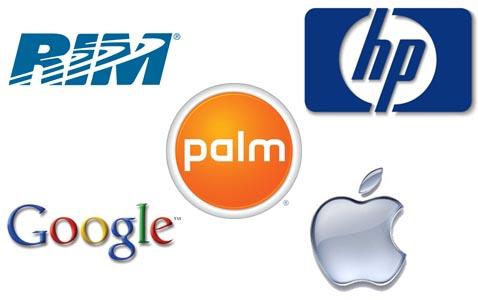
We all know how the entire Palm bidding process ended up, but many have wondered who else was in the race to buy Palm. The race had many competitors and, according to a report released today by Business Insider, the deal almost ended in a completely different fashion. Speaking with a "source familiar with the negotiations," Business Insider has learned that Apple, Research In Motion (makers of the BlackBerry), Google, and Lenovo were four of the other companies in the bidding war for Palm. According to the source, Apple and Google were both looking to acquire Palm's intellectual property and patent portfolio. Apple also they seemed interested in supporting Palm and their platform alive in order to compete in the physical QWERTY market. RIM was actually very close to winning the race, Business Insider's source said, until they failed to re-up their bid and HP swooped in to seal the deal.
The news that Apple, Google, and RIM were all involved in the Palm bidding process is unsurprising considering the company's vast patent portfolio. What is interesting, though, is the idea that Apple would've kept Palm alive in order to make an appearance in the physical QWERTY game. It's also fun to think about what RIM would've done had they won Palm. Maybe a totally revamped version of the BlackBerry OS with portions of Palm's webOS mixed in? Daydreaming about different possibilities won't change how the case actually turned out, though, and I'm glad that HP has decided to keep Palm and webOS going under the Palm brand, at least for now. So, HP/Palm, where's that new webOS hardware we've heard about?
Via Business Insider